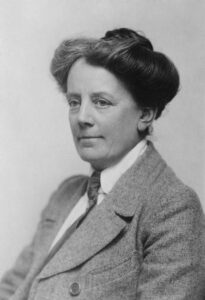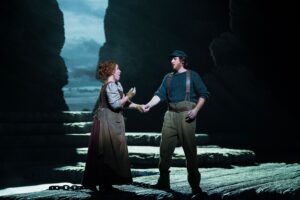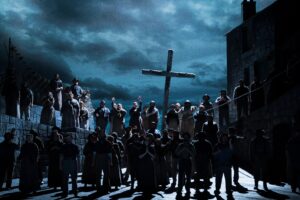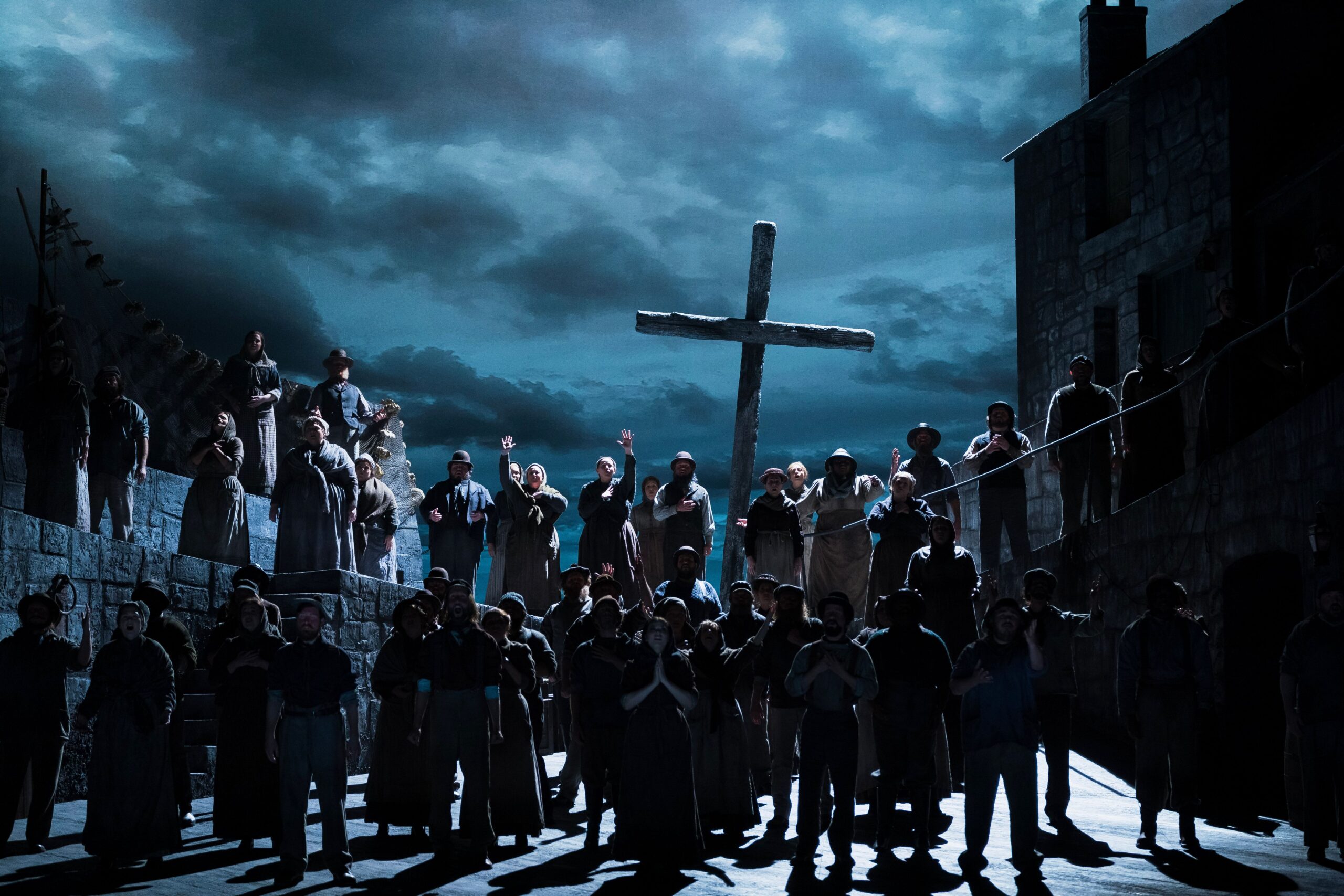A very rarely-performed English opera from 1906, The Wreckers is making a real splash now At Houston Grand Opera.
I use the word ‘splash’ as a pun, as the opera deals with a small coastal community in Cornwall, England, whose sole source of sustenance and income derives from taking advantage of shipwrecks. Thus, the name of the opera, The Wreckers. This settlement, in the grips of a Methodist religious mania, not only profits by shipwrecks but actively facilitates ships running into the rocks. They do this by not lighting bonfires on shore to give mariners warning.
The opera’s composer has a most interesting background. It was the third opera composed by Dame Ethel Smyth (1858-1944), the first female composer ever awarded a damehood (the equivalent of a knighthood for a man). This great honour was conferred upon her by King George V in 1922.

Dame Ethel had a wild(e) life. A notorious lesbian, she became engaged to the brother of Oscar Wilde (!) but did not follow through with a marriage. Her relationship with the harpsichordist Violet Gordon-Woodhouse became so well known that Roger Scruton (whom I met in London in 2016) wrote the opera Violet in 2005 that satirically depicted them. Dame Ethel was also not afraid of Virginia Wolff – at age 71 Ethel fell in love with world’s most famous female English writer.
The Wreckers opened in London in 1909. Originally written in French, Dame Ethel translated it into English for the London premiere. The French version was not performed until earlier this year at Glyndebourne. And combined with a new English version with this performance in Houston, one must say The Wreckers has just experienced an extraordinary second life 113 years after it began.
Dame Ethel’s connexions were first with Germany. She studied in Leipzig and wrote her first two operas in German because she didn’t really think England was interested in the style of opera she wanted to write. Strangely, she thought The Wreckers would have a better chance to be accepted in England if it was written in French! When that fell through it was quickly translated into German for that audience, and then into English. Likely a unique linguistic path for any opera ever written.

It is a ‘grand’ opera in the best sense of that term as a bigger-than-life portrayal. The setting itself is tumultuous, as the shore of Cornwall has been regarded since Roman times as a dangerous place to sail. As a grand, romantic opera, it has beautiful long, lyrical melodies, immense choral numbers and exciting dialog. Tension is the keynote, building throughout the opera with roles on a Wagnerian scale. This requires powerful singers, especially for the mezzo and tenor roles. This is unusual for an opera, as the lead is a mezzo, not a soprano. In this it is like Carmen, and Dame Ethel herself was a mezzo. In The Wreckers, the soprano is the antagonist, not the heroine.
A love triangle in the opera mirrors a love triangle Dame Ethel herself was involved in as a young woman. At the centre of the triangle we find Mark (sung by the tenor Norman Reinhardt). He is loved by both Avis (the soprano Mane Galoyan) and Thirza (the mezzo Sasha Cooke). To complicate matters, Thirza is married to Pascoe (the baritone Reginal Smith Jr.), a very large guy whose voice is so powerful it shakes the Wortham Theatre where many Houston Grand Operas are performed. Absolutely the right selection for this role!
Another element in the opera that is absolutely right are the views of the community in the village versus Mark & Thirza. Each is implacably opposed to the other: they are morally right, they are righteous. “To love is to die and newly awaken,” states Thirza. Smyth likely brought this moral dilemma to the opera from her own life experience, not only because of her sexuality but because she ardently supported the suffragette movement in England, trying to get women the right to vote. The views of the community in the opera are in the hands of the chorus which looms large here, not only because it is composed of a large cast. They are imbued with a forceful dramaturgy and at times the chorus seems to literally lunge at the audience, so sure are they of their position. Both Cooke and Reinhardt delivered convincing performances both musically and dramatically.
Set design by Christopher Oram was spectacular, defeating the many challenges posed by recreating a rocky vista, a village, and a cave. The orchestra also faces a challenging role here, with a colourful and exciting score. The overture is evocative of wind and rain, and again to introduce the third act the music swells like the ocean, expressing the power of the waves that so dramatically ends the opera.
Visit the website for tickets to performances: houstongrandopera.org
Photographer credit: Michael Bishop.

